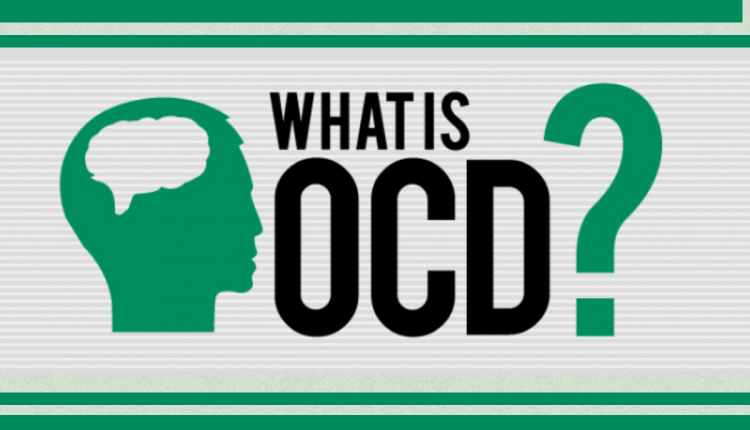Obsessive-Compulsive Disorder (OCD) is a mental health condition characterized by intrusive thoughts and repetitive behaviors. These obsessions and compulsions can significantly interfere with daily life, causing distress and anxiety. If you are suffering from this disorder then you should consult with the best psychiatrist or be admitted to the best psychiatric hospital if necessary.
In this guide, we will explore the nature of OCD, its symptoms, causes, and treatment options. This guide will also address common misconceptions about OCD and provide practical advice on managing symptoms and improving quality of life.
Read more to get further details.
Is OCD normal?
While OCD is a common mental health condition that affects many individuals worldwide, it is important to understand that it is not a ‘normal’ part of human behavior. The term ‘normal’ in this context usually refers to experiences that don’t cause significant distress or interfere with daily functioning.
OCD, on the other hand, involves chronic symptoms that go beyond normal habits or worries and can lead to severe impacts on an individual’s daily life and well-being if not addressed. Therefore, while not uncommon, OCD represents a departure from typical patterns of behavior and thoughts, necessitating professional attention and treatment to help manage the condition effectively.
Symptoms of OCD
- Obsessions: These are intrusive, unwanted thoughts, images, or urges that repeatedly enter the mind, causing significant anxiety or distress. Common themes include fear of contamination, preoccupation with symmetry, or concerns about harm.
- Compulsions: These are repetitive behaviors or mental acts performed in response to an obsession or following rigid rules. Examples include excessive washing or cleaning, checking, counting, or the need for orderliness.
- Time Consumption: Obsessions and compulsions are time-consuming, often taking up more than an hour a day, and interfere with one’s social, occupational, or other important areas of functioning.
- Avoidance: Individuals may avoid places, situations, or objects that can trigger obsessions, which can further limit their daily life.
- Temporary Relief: Performing compulsions often provides only temporary relief from anxiety, leading to a cycle of repetitive behaviors.
Causes of OCD
The exact cause of Obsessive-Compulsive Disorder (OCD) is not fully understood, but it is believed to result from a combination of genetic, neurological, behavioral, cognitive, and environmental factors.
- Genetic Factors: Research suggests that OCD can run in families, indicating a genetic component. Individuals with a family history of OCD are at a higher risk of developing the condition.
- Neurological Factors: Brain imaging studies have shown differences in the structure and functioning of the brains of individuals with OCD. These differences are often observed in areas of the brain involved in decision-making and behavior regulation.
- Behavioral and Cognitive Factors: Learning history and thought patterns can contribute to the persistence of OCD. For instance, individuals might learn to associate certain objects or situations with fear, leading to compulsive behaviors as a way to manage anxiety.
- Environmental Factors: Traumatic or stressful events, such as abuse, illness, or a significant life change, can trigger or exacerbate OCD symptoms in some individuals.
Understanding these factors can help guide treatment by identifying potential triggers and informing personalized therapeutic strategies, aimed at alleviating symptoms and improving overall functioning.
Treatment Options for OCD
Obsessive-Compulsive Disorder (OCD) can be a debilitating condition, but several effective treatment options are available to help manage the symptoms. The primary treatments for OCD include Cognitive Behavioral Therapy (CBT), medication, and lifestyle modifications.
- Cognitive Behavioral Therapy (CBT): This is a commonly used therapy for OCD that focuses on changing the thought patterns and behaviors that are contributing to the disorder. A specific form of CBT, known as Exposure and Response Prevention (ERP), is especially effective. ERP involves gradual exposure to fears or obsessions and teaching individuals to refrain from performing accompanying compulsions. Over time, this helps reduce anxiety and break the cycle of obsessive-compulsive behaviors.
- Medications: Selective serotonin reuptake inhibitors (SSRIs), a class of antidepressants, are often prescribed to help reduce OCD symptoms. These medications can alter brain chemistry, which may help patients maintain calmer mental states and handle daily activities more effectively.
- Lifestyle Modifications: Incorporating regular exercise, maintaining a balanced diet, and getting adequate rest can support the treatment of OCD. Mindfulness and stress-relief techniques, such as meditation, yoga, or deep-breathing exercises, can be beneficial in managing anxiety and reducing the occurrence of obsessive thoughts.
Conclusion
In summary, Obsessive-Compulsive Disorder (OCD) is a prevalent mental health condition that significantly impacts the lives of those affected. Understanding that OCD is not a ‘normal’ deviation in behavior but a serious condition requiring attention is crucial in dismantling stigma and promoting empathetic support.
Through comprehensive knowledge of its symptoms, causes, and treatment options, individuals living with OCD can achieve better symptom management and an improved quality of life. Furthermore, raising awareness and fostering supportive communities can lead to more successful outcomes, helping individuals feel understood and valued as they navigate their mental health journey.










